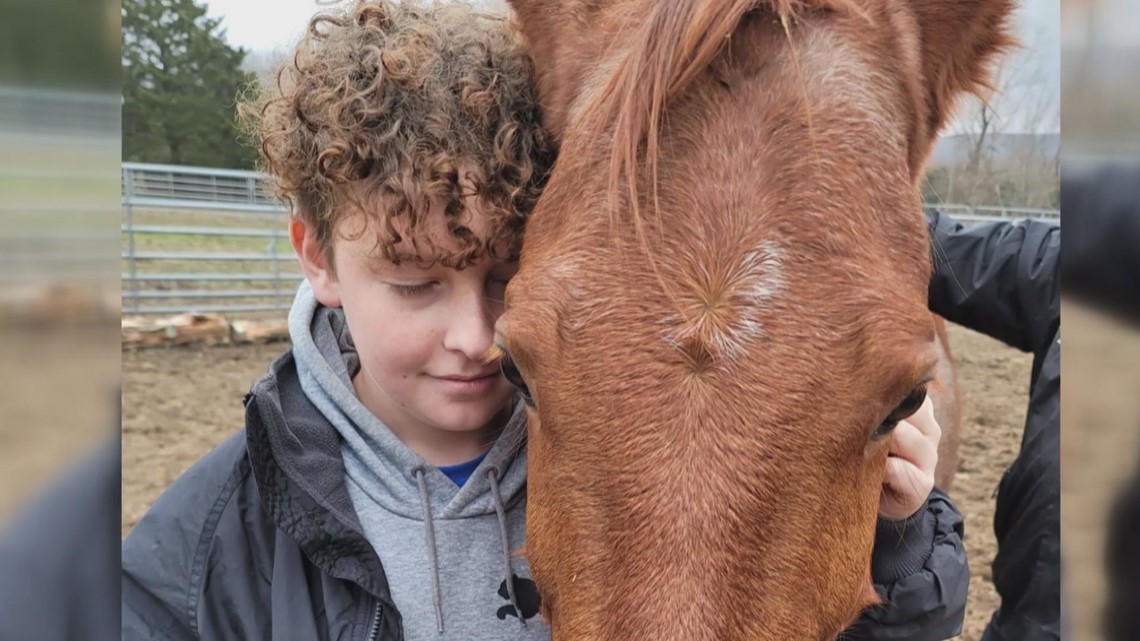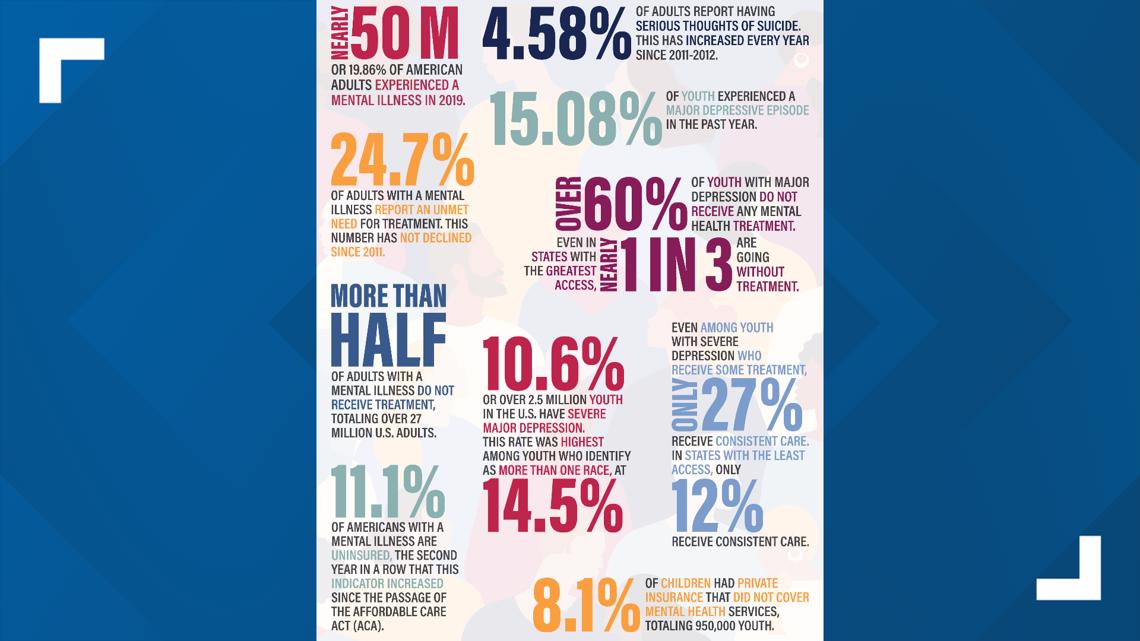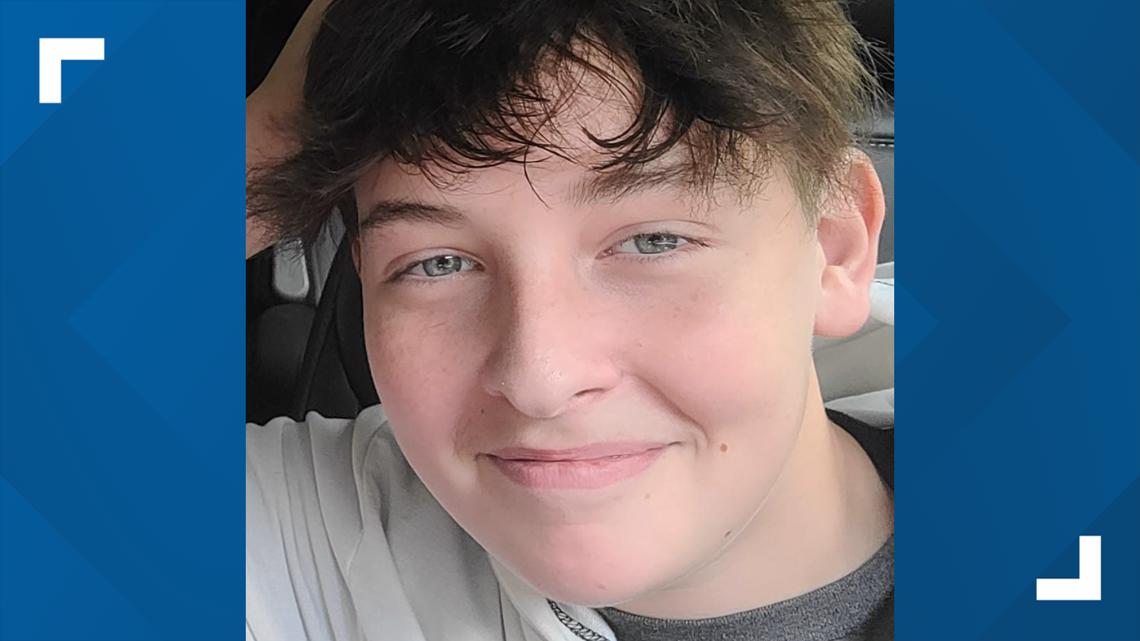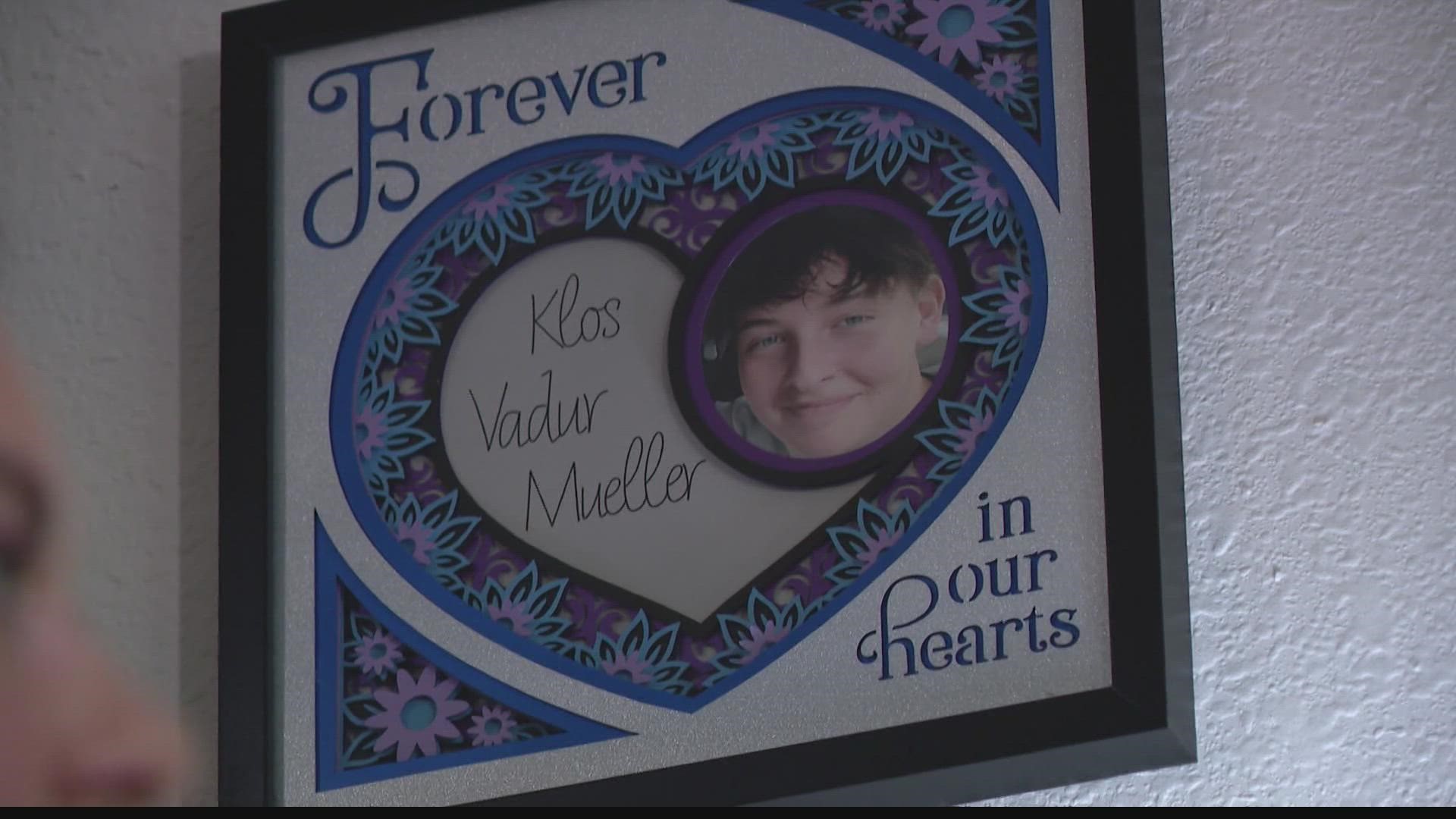ST. LOUIS COUNTY, Mo. — In the last five years, nine students have died by suicide in the Rockwood School District, based on numbers from the district’s social worker. The most recent loss was 13-year-old Klos Mueller, who took his life in early February.
His mother, Sheila Mueller, pushes through the pain to bring awareness to bullying and the dangers of social media.
“I fly for a living on a helicopter, and every patient I take care of, my job is to save them. I couldn’t even save my own kid and I tried," said Sheila Mueller, wiping away tears.
You can't understand the hurt of a grieving parent until you live it.
"People say, oh you're living my worst nightmare and I say, no honey, I can’t wake up from this. I wake up every day and still my kid is not here. He’s in a frame on a wall and he’s in a casket 6-feet under. This is not a nightmare, this is my life," Mueller said.
She noticed her son had been withdrawn earlier this year. She said he was dealing with bullies on Snapchat and at La Salle Springs Middle School. She took him to the doctor who prescribed him anti-depressants. They had just increased his medication and a week later, he was gone.


"I mean I feel like I should have seen it," Mueller said.
Dr. Terry Harris is executive director of student services for the Rockwood School District. His job is to make sure students are well enough to receive an education. Rockwood is one of the St. Louis area's largest school districts with 32 schools.
"The monster is in front of us and we have nowhere to hide," Harris said.
Harris says the district is implementing procedures and training to better equip staff with the tools needed to recognize and report students who might be struggling.
There are more than 70 counselors, 18 social workers, social/emotional behavior therapists and close to 20 school nurses. Still, Harris says they could do more.
"We don't want to lose any more kids. We don't want to have any more difficult conversations with family," Harris said.
Mental Health America’s 2022 report found over 2.5 million youth in the U.S. have severe major depression and that 1 in 3 go without treatment.


Dr. Chelsey Wilks is a clinical psychologist and studies suicide prevention and treatment at UMSL, where she is an associate professor.
Dr. Wilks says, “I work with a lot of people at suicide hotlines and they’re saying calls are up, parents who are distressed are up and they're seeing a lot of signs that things are going to get really really bad. Particularly with elementary, middle school, high school and college students. Everybody is pretty nervous right now in the suicide community."
Numbers from the CDC show a decline in suicide in 2019 and 2020 with nearly 46,000 deaths in 2020. Dr. Wilks feels like those numbers are on the rise.
"I’m on a couple local and state-wide suicide coalitions and we are all just pretty anxious right now. We could see a post-pandemic boomerang effect,” Wilks said.
Schools are trying to keep up with the growing mental health crisis. The Rockwood School District just partnered with Hazel Health to give students immediate access to counselors through a telehealth visit.
“The first day of launch we had 13 families sign up," Harris said. "To date we're probably at 100 referrals."


"If you can’t fix the internal problem, which is the bullies, you don't have anything. Those kids might be able to speak to a counselor for 30 minutes and then they walk out and get bombarded for 8 hours with bullying and then they get home and they're getting Snapchat messages with 'kill yourself,'" Mueller explained.
"Social media is not the best place for kiddos in my opinion," Wilks said.
"What I think is that Snapchat is taking over our parenting role. I don’t know of a solution. When I come up with one, I'll make it known,” Mueller said.
Experts in the field say the focus on mental health and well-being should start early on in a child’s life. The Rockwood school district has a program called Second Step where emotional literacy is taught starting in kindergarten.
If you or someone you know is struggling ask them if they're okay, keep checking in and give them this number to the suicide hotline: 1-800-273-8255.

